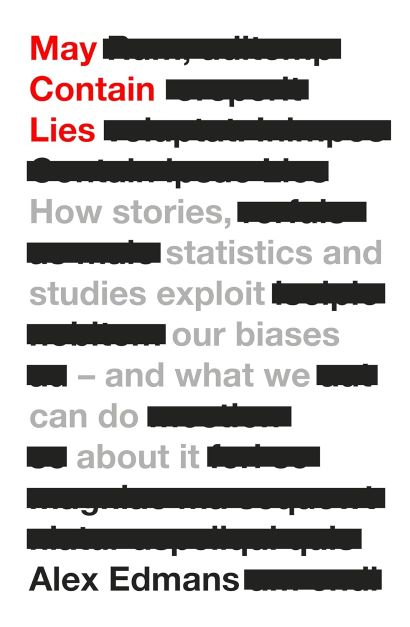Date: Tuesday 26th November 2024 Time: 18:30 - 19:30 GMT
Venue: Sheikh Zayed Lecture Theatre, Cheng Kin Ku Building, LSE (map)
Speaker: Alex Edmans (London Business School)
Chair: Daniel Ferreira (LSE Finance & FMG)
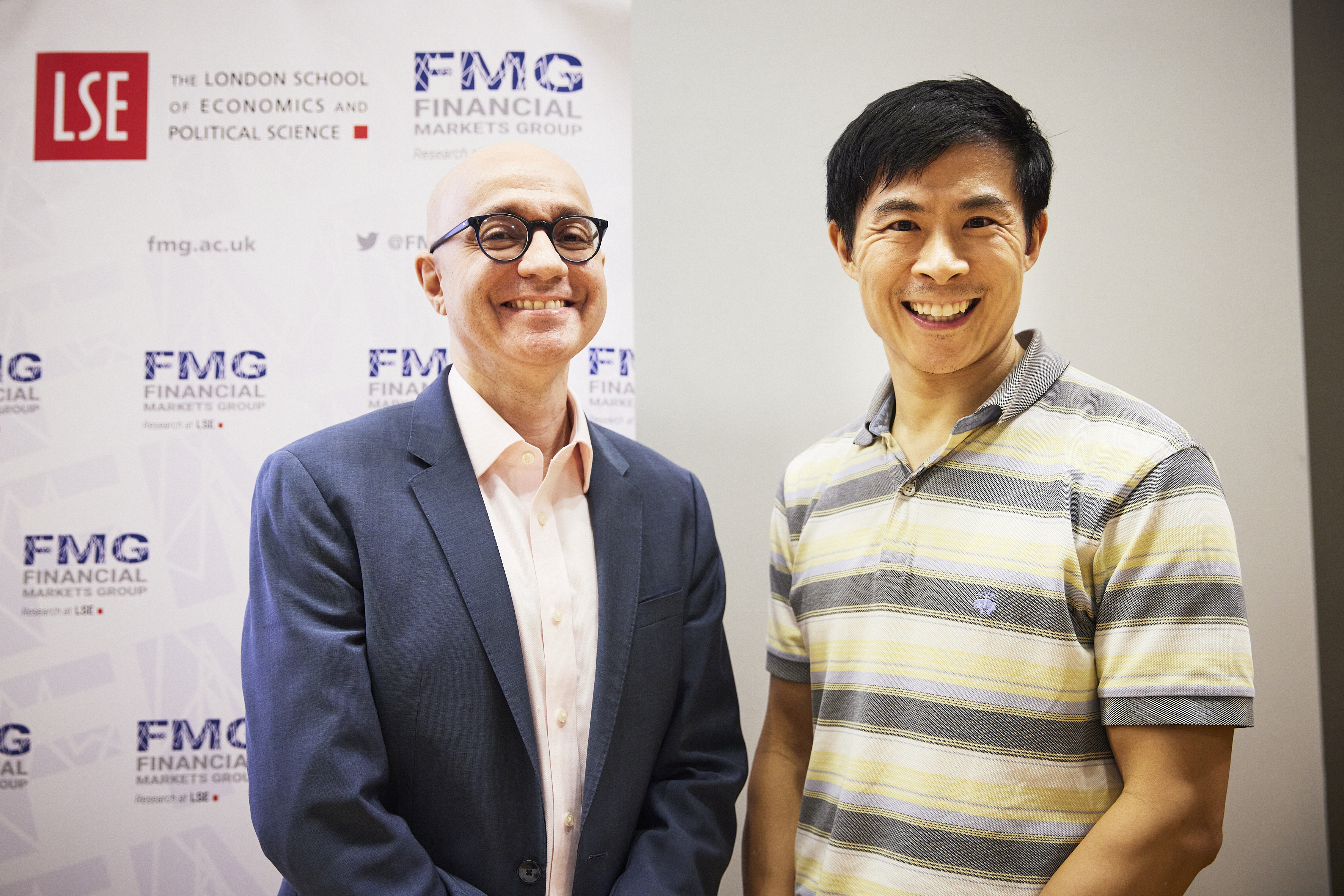
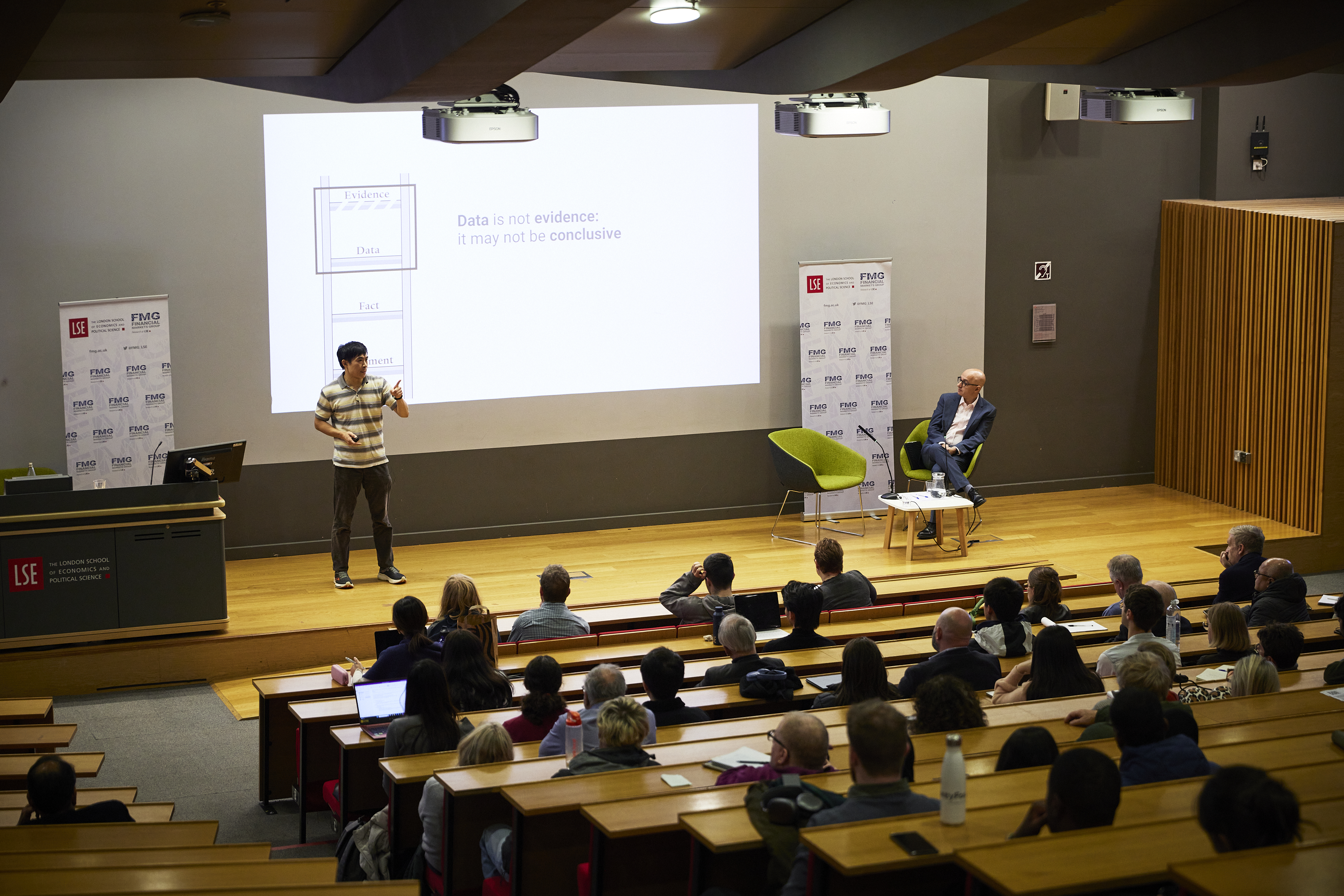
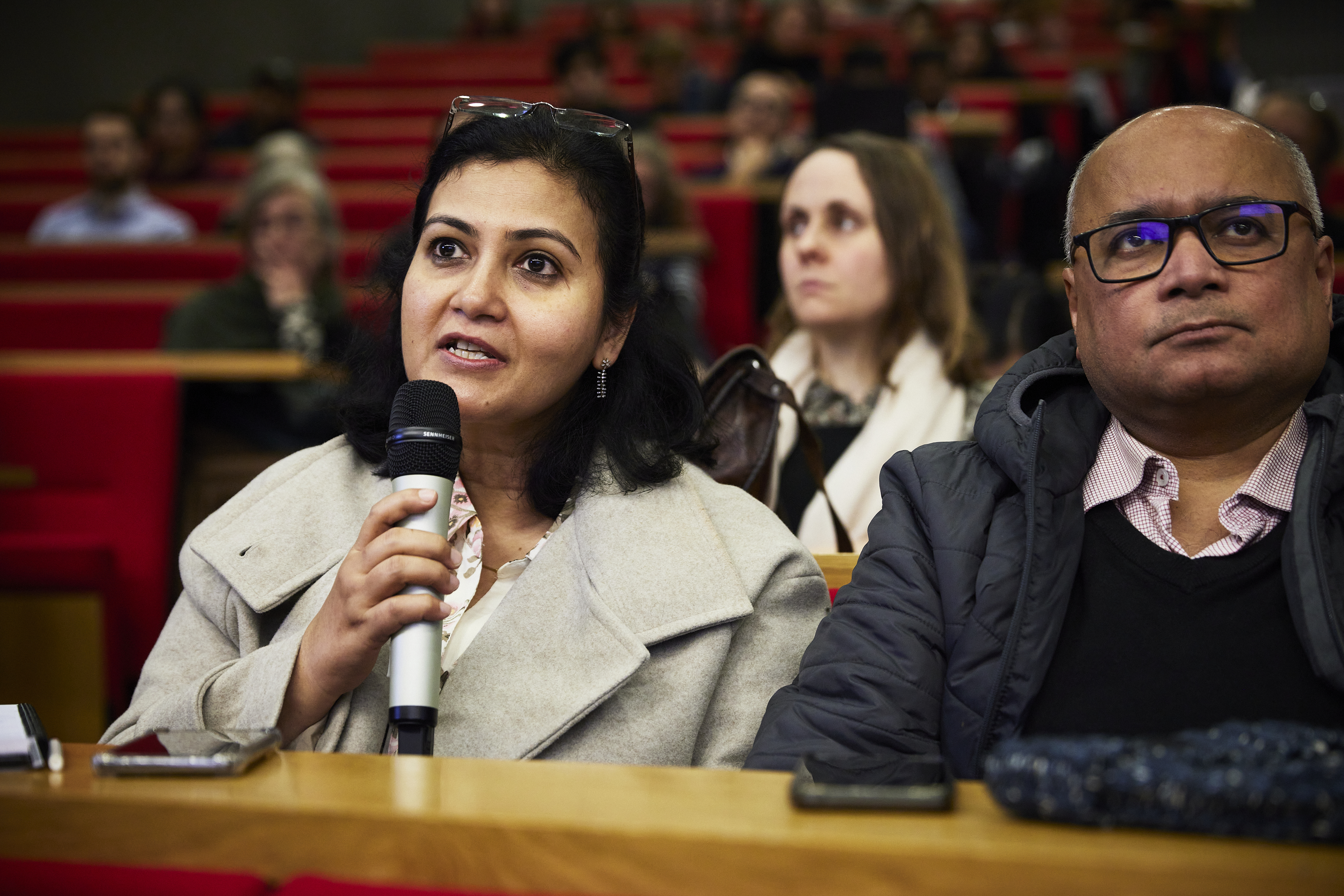
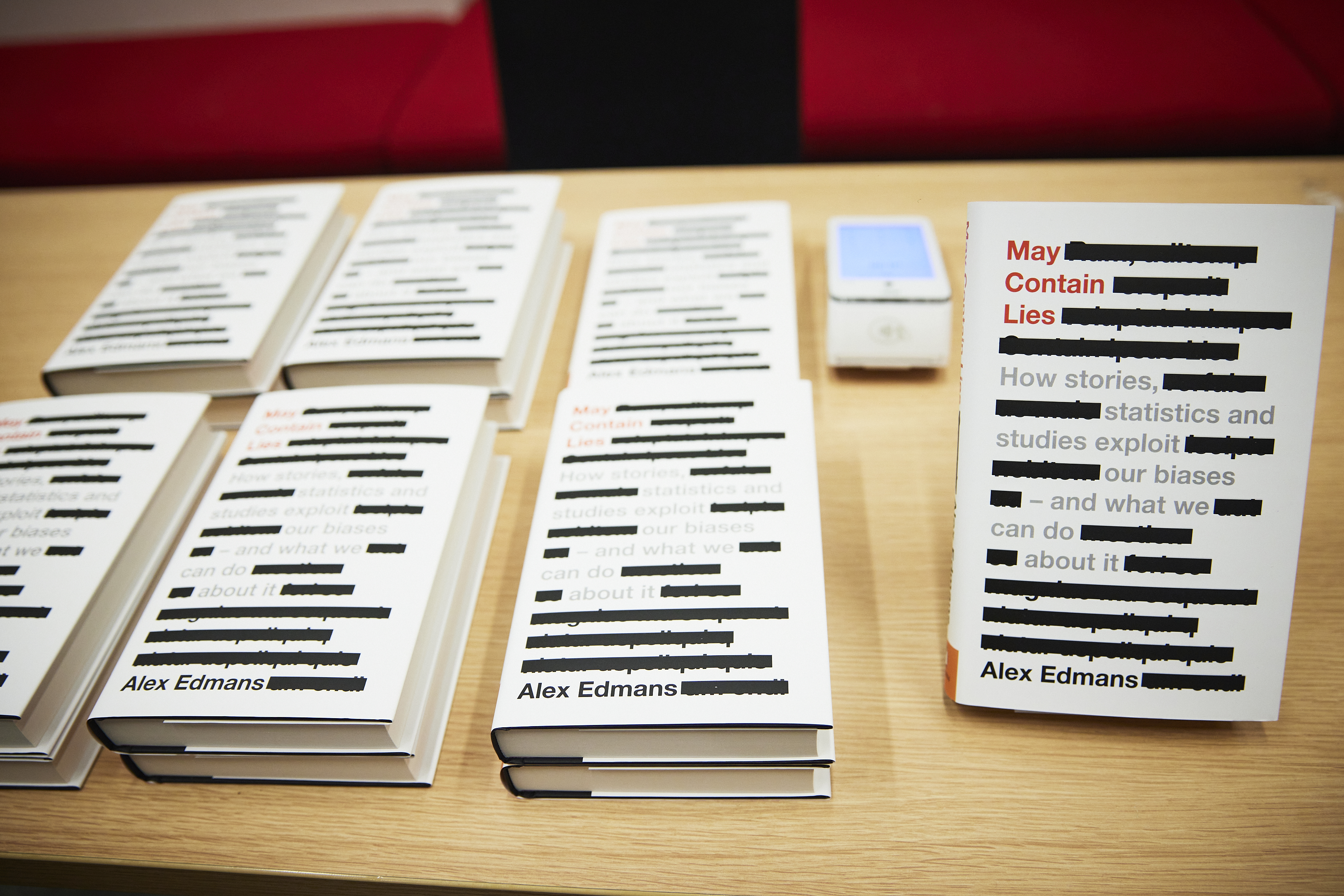
More photos
Our lives are minefields of misinformation. It ripples through our social media feeds, our daily headlines, and the pronouncements of politicians, business leaders, and best-selling authors. Stories, statistics, and studies are everywhere, allowing people to find evidence to support whatever position they want. Many of these sources are flawed, yet by playing on our emotions and preying on our biases, they can gain widespread acceptance, warp our views, and distort our decisions.
This talk explains how to separate fact from fiction. Using colourful examples, it first highlights the biases that cause us to mistake statements for facts, facts for data, data for evidence, and evidence for proof. Armed with the knowledge of what to guard against, it then provides a practical guide to combat this tide of misinformation. Going beyond simply checking the facts and explaining individual statistics, it explores the relationships between statistics – the science of cause and effect – ultimately training us to think smarter, sharper, and more critically, to make better sense of the world and take better decisions.
There will be book sales on the night and the author will be signing copies after the event.
Registration
This public event will take place in-person, is free and open to all, but will require pre-registration. You can register by clicking the "Register" button on this page.
#LSEAlexEdmans
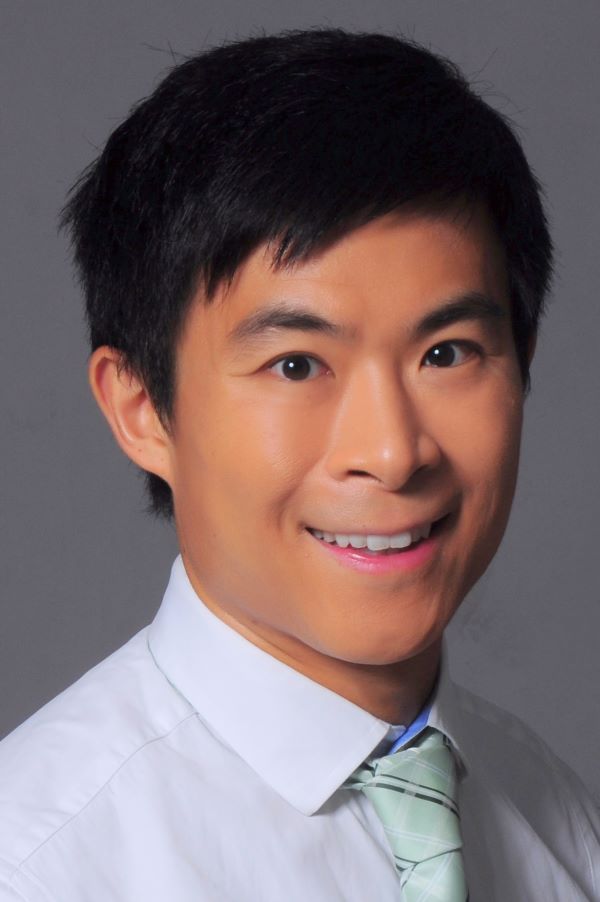
Alex Edmans
Alex Edmans is Professor of Finance at London Business School. Alex has a PhD from MIT as a Fulbright Scholar, and was previously a tenured professor at Wharton and an investment banker at Morgan Stanley. Alex has spoken at the World Economic Forum in Davos, testified in the UK Parliament, and given the TED talk “What to Trust in a Post-Truth World” and the TEDx talks “The Pie-Growing Mindset” and “The Social Responsibility of Business” with a combined 2.8 million views. He serves as non-executive director of the Investor Forum, on the World Economic Forum’s Global Future Council on Responsible Investing, on Royal London Asset Management’s Responsible Investment Advisory Committee, and on Novo Nordisk’s Sustainability Advisory Council. He is a Fellow of the British Academy and a Fellow of the Academy of Social Sciences. Alex’s book, “Grow the Pie: How Great Companies Deliver Both Purpose and Profit”, was a Financial Times Book of the Year and has been translated into nine languages, and he is a co-author of “Principles of Corporate Finance” (with Brealey, Myers, and Allen). He has won 26 teaching awards at Wharton and LBS and was named Professor of the Year by Poets & Quants in 2021. His latest book, May Contain Lies: How Stories, Statistics, and Studies Exploit Our Biases – And What We Can Do About It was published by Penguin Random House in April 2024.
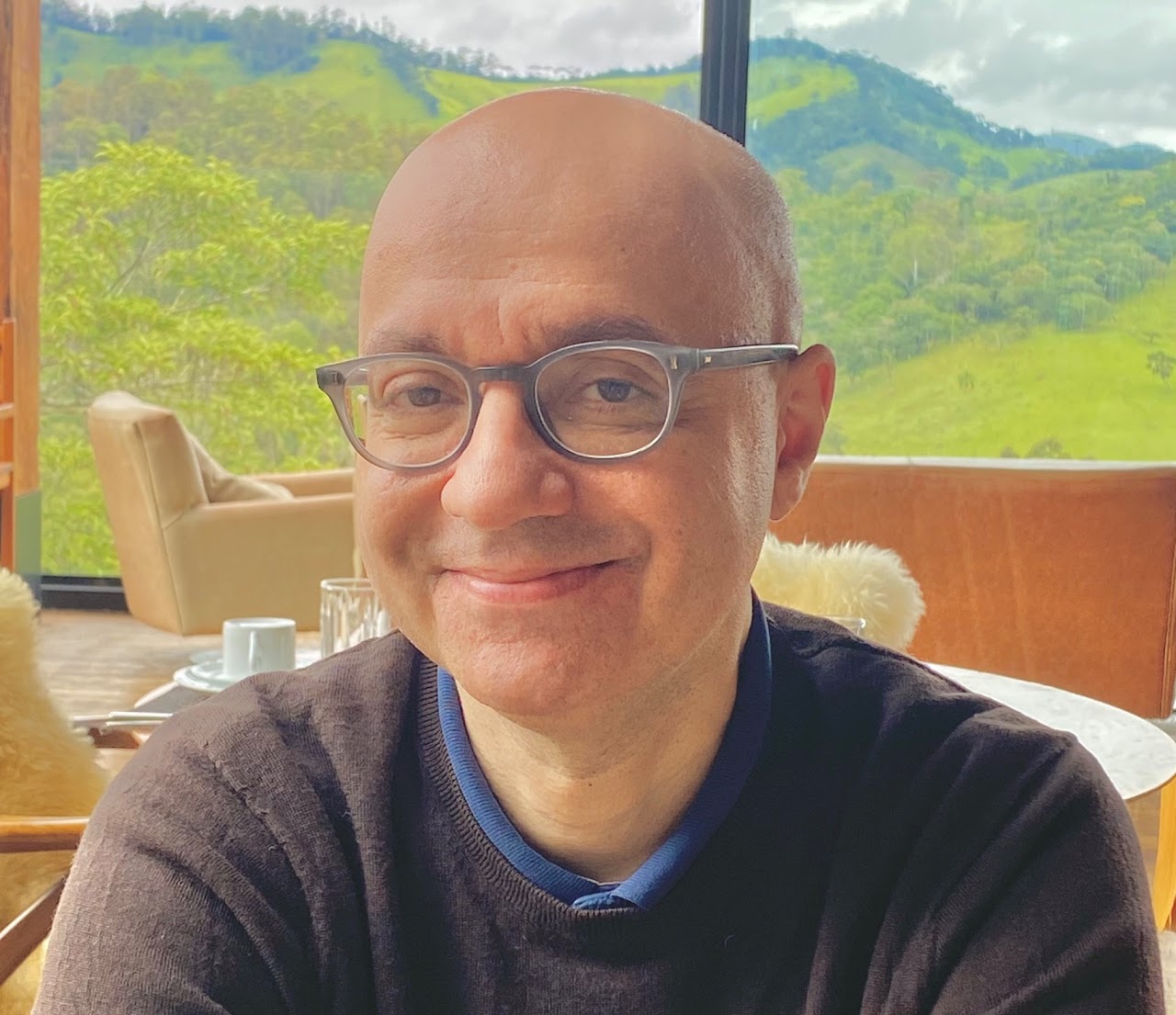
Daniel Ferreira
Daniel Ferreira is Professor of Finance at LSE and a European Corporate Governance Institute Fellow. He is known for his work on corporate governance, especially on the workings of corporate boards, having written several influential articles on the topic. He is also an expert on the economics of blockchain, crypto, and decentralised finance. His academic work is relevant to policy and has had a significant media impact, being covered by The Wall Street Journal, The Financial Times, and The Economist, amongst others. He has also offered expert advice to businesses, governments, and organisations. Daniel is an expert in diversity issues in business and finance. He co-authored one of the most influential articles on women on corporate boards. He was an expert witness for the UK Treasury Select Committee inquiry on Women in the City. He has been at LSE since 2006, initially in the Department of Management and then in the Department of Finance, where he served as Head in 2020 – 2023. His previous academic positions were at Nova SBE (Lisbon), Stockholm School of Economics, and EPGE-FGV (Rio de Janeiro). He has a PhD in Economics from the University of Chicago.
Book cover:
